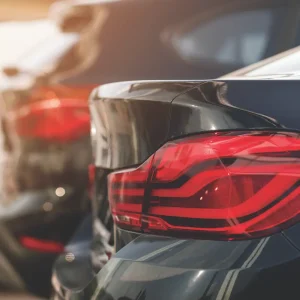Fleets on average pay 30% more on insurance premiums than a private buyer, and a key reason for this is the increased amount of miles company car drivers typically travel each year.
Although fleets may not be able to reduce annual mileage, in-car cameras could be a cost-effective alternative when it comes to reducing premiums, especially if fleet managers don’t have the resource or the financial backing from the board to install telematics systems.
Dash cams are still very much in their infancy here in the UK, but interest is growing as more fleets learn how fitting the systems can help combat rising insurance costs.
Independent witness
One of the main advantages to installing dash cams is that they provide video evidence of each incident, which helps to determine who is at fault much quicker.
Nextbase, the UK’s leading provider of dash cams, has entered a three-year partnership with Constructaquote.com, a specialist van and fleet insurance firm, which enables fleet customers to receive a 15% reduction on a new policy if the cars are fitted with the firm’s cameras.
“Having an independent witness is a key benefit as it avoids split liability claims and helps to protect insurance costs going up when you can prove that your driver is not at fault,” Richard Browning, a director at Nextbase tells BusinessCar.
The firm’s dash cam records continuously, retaining up to 11 minutes of footage, which is saved on its SD card if an accident occurs. In some systems the footage will be automatically sent on to the fleet manager and insurance company.
According to Liam Chatfield, fleet account executive at First Insurance Solutions Ltd, installing dash cams can make the underwriters look at insurance policies differently because it shows fleets are taking risk management seriously, although each insurer will vary when it comes to the savings they offer.
“Prevention is better than cure,” he says. “If the fleet has high insurance costs, we would recommend installing dash cams. It shows the fleet are taking risk management seriously and underwriters will usually take this into account,” he added.
Paul Fincham, motor fleet broker at Bluedrop, believes that dash cams are also a great way of deterring drivers who have a history of, or are more prone to, accidents.
“Insurers look at dash cams in different ways. Some will offer a discount, others will insist upon them being fitted in particular trades. Also, insurers may take on clients who have a less than clean record if they fit dash cams – not only do they assist in proving liability but they also act as a strong deterrent for drivers who may have been involved in accidents previously, which in turn assists in decreasing accident frequency,” he tells BusinessCar.
Reducing downtime
Another benefit to installing an in-car camera is the reduction in vehicle downtime as the footage can help settle claims quicker.
According to Nextbase, average time from claim to payout is usually six weeks, but when cars are fitted with dash cams this reduces to 6-7 days.
“Time saving is a big deal. Big and small fleets will have policies where, if the vehicle is involved in an accident, it is kept off the road, which can be a huge cost to the company in downtime,” Browning adds.
Chatfield agrees and, according to the insurance firm, statistics show that claims can be 30% cheaper if picked up in 24 hours, even if your driver is at fault.
“If a client is on the ball and sends over dash cam footage sooner rather than later, statistics show that claims can be 30% cheaper overall.
If settled quickly it’s also less likely to be followed up by an injury claim,” he says.
An end to fraudulent claims
According to Nextbase, personal injury claims only make up 9% of total claims, yet account for 51% of the total insurance cost – an average damage claim costs £2700, while injury claims jump up to £11,000, a significant difference.
By using dash cams, fleets can not only prove who was at fault, but the video footage also records the speed of the vehicle and, in some cases, also records the G-force of the collision so can determine whether whiplash and other injury claims are legitimate. They can also provide evidence on crash-for-cash claims.
“We have experienced several cases in the last couple of years that have tried to claim for more personal injury than the number of people in a vehicle, which have successfully been declined due to supporting footage provided by our client’s dash cam systems,” says Fincham.
Sales of in-car cameras increased by 395% last year, according to data from retail analysts GfK, and Chatfield believes they could soon be mandatory here in the UK.
“There are so many false claims made I wouldn’t be surprised if they become mandatory very soon or manufacturers start fitting dash cams as standard in their cars,” he concludes.





